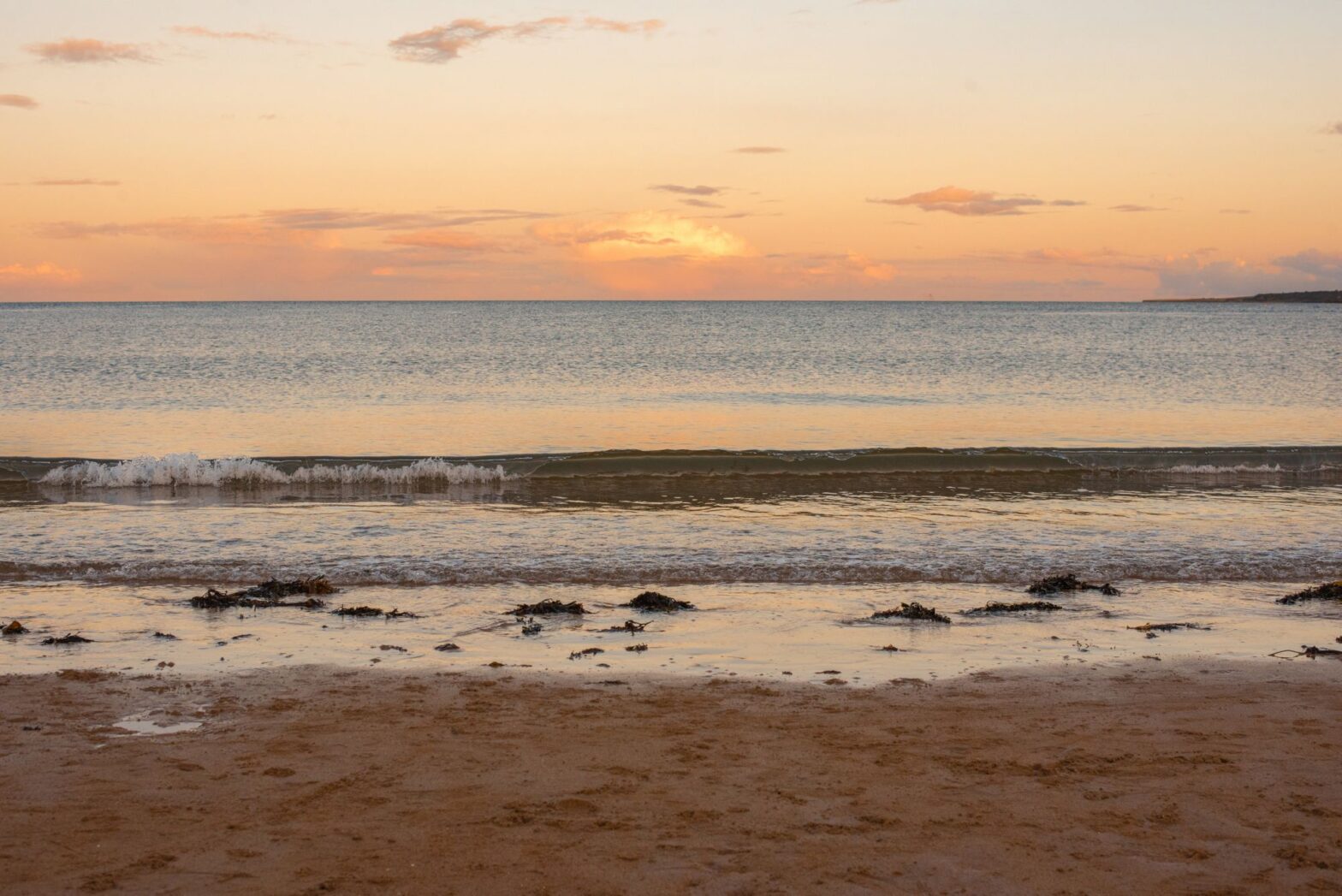Dorothy Lawrenson: I grew up on the shores of the Firth of Tay, and I spent many hours looking for shells and shiny things on the beach at the end of our road. I hoarded many such treasures and have probably still got them in a box somewhere. But there are also devastatingly beautiful sunsets to be seen if you lift your head and look westwards, upriver. I suspect that a large part of what draws me towards poetry is a desire to reconcile the transience and mutability of the natural world with the permanence of made or found objects.
Carlos Llaza: Sunsets can be moving, even overwhelming. ‘The Lowes’ successfully juxtaposes the ephemeral with the permanent. Through small and large natural objects, the speaker evokes the devastating beauty and pain of longing for transcendence. Childhood and memory are at the core of the poem, as the reader will notice. ‘Curlew’ in Spanish is ‘zarapito’, a word that draws a lot of attention to itself. However, it adds a certain playfulness to the initial stanza.
Scroll down to see a video of poet and translator reading this poem, with English subtitles.
The Lowes
bi Dorothy Lawrenson
Daunderin on the shore
thae simmer forenichts
heid doon lik a whaup
wi’s neb i the grummel,
Aa’d rake the glessy sand
fur buckies or clinkers,
ony toy Aa cud fordel.
Syne Aa’d strauchten, rax
ma hippit hurdies,
an stell masel fur the lowe
i the westren lift, that still
Aa canna thole.
Thae gleeds o reid an gowd
wad wrack the thrawnest hert;
they steik me yet
an reive ma saul
athoot Aa jink ma een
the ither airt
oot owre the brae,
tae thon hooses
whaur ilka lozen lunts
wi a glent o reid-gowd
lik a bairnie’s nicht-licht
that lowes stieve an siccar,
an bides the hale nicht lang.
Los Fuegos
traducido al español por Carlos Llaza
Deambulando en la orilla
aquellas noches de verano
cabeza gacha cual zarapito
con el pico en el fango.
Yo rastrillaba la arena
en busca de conchas o monedas
algún juguete que atesorar.
Después, me erguía, estiraba
las ancas rígidas,
y me preparaba para el resplandor
en el cielo del oeste, que aún
no consigo soportar.
Aquellas brasas rojas y doradas
desgarrarían hasta el corazón más agrio;
todavía me atraviesan
y saquean mi alma
a menos que lance los ojos
hacia el lado opuesto
sobre esa ladera,
hacia aquellas casas
donde cada ventana se enciende
con un fulgor de oro rojo
como la luz nocturna de un niño
que arde firme y segura
durante toda la noche.
The Fires
translated into English by Dorothy Lawrenson
Wandering on the shore
those summer evenings
head down like a curlew
with its beak in the mud,
I’d rake the glassy sand
for shells or coins,
any toy I could hoard.
Then I’d straighten, stretch
my stiff haunches,
and brace myself for the blaze
in the western sky, that still
I can’t bear.
Those embers of red and gold
would wreck the bitterest heart;
they pierce me still
and plunder my soul
unless I dart my eyes
in the other direction
over the top of the brae,
to those houses
where each windowpane kindles
with a glint of red-gold
like a child’s night-light
that burns steady and safe
and lasts the whole night long.

Knowing the Tay sunsets myself, I am especially moved by this! Exciting, too, to hear the parallel experience in Spanish.
Beautiful!🥰🥰🥰
An excellent poem. You have a very strong knowledge of the Scots language. I cannot comment on the translation, I’ve never passed a foreign languge exam in my life! But I did pass an OU course on the Scots toungue.